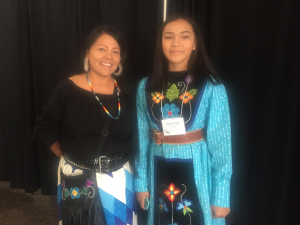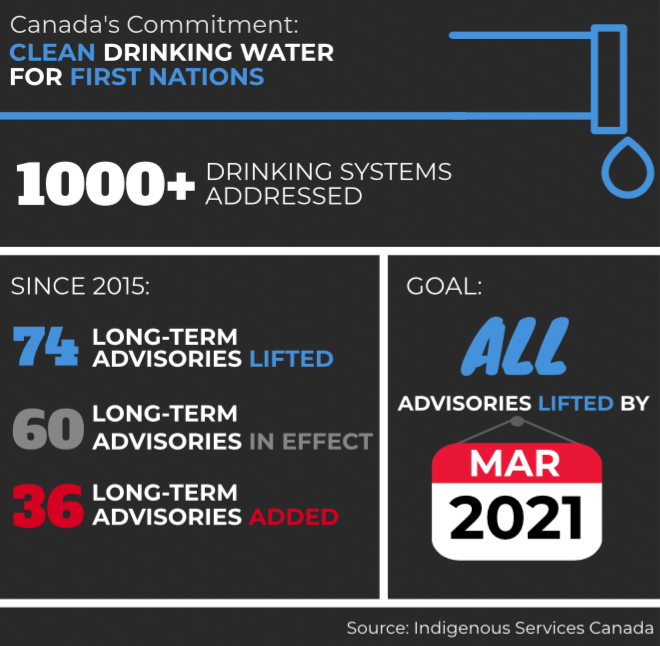Teen advocates for clean drinking water for First Nations

Autumn Peltier (right) stands with her mother, Stephanie Peltier
As a young girl growing up on Manitoulin Island, Autumn Peltier was shocked to learn about the rampant drinking water problems in Indigenous communities. Now, as a 14-year-old, she’s one of Canada’s youngest water advocates.
“We need it,” Autumn said. “It is all around us.”
Although Autumn grew up in an area with clean drinking water, she was motivated to speak publicly after realizing how pervasive undrinkable water is in First Nations communities elsewhere. “Water is part of life,” Autumn said.
Autumn began speaking in public about the need for clean drinking water in Indigenous communities as a child. She quickly rose to prominence, challenging Prime Minister Justin Trudeau at an Assembly of First Nations meeting last year and speaking at the United Nations General Assembly in March. Friday, she spoke at the Indigenous Women’s Leadership Summit in Gatineau, a conference focused on solving the challenges Indigenous women have faced in government, business, family and community.
Autumn, a member of the Wiikwemkoong Unceded Territory, does these speeches while still going to Manitoulin Secondary School.
“If I didn’t work and she didn’t have to go to school, we would probably be speaking every week somewhere,” said Stephanie Peltier, Autumn’s mother.
“I do get overwhelmed sometimes,” Autumn said. “Especially with school, it can get really hard.”

Canada’s commitment to clean drinking water. Ottawa is looking to clean up the water supplies by 2021, and Indigenous women like Autumn are holding the government to that.
The federal government aims to have eliminated all drinking water advisories by 2021. But the Office of the Parliamentary Budget Officer has pointed out that new investments are only reaching 70 percent of what is needed for clean water in Indigenous communities. According to the Suzuki Foundation, the Government of Canada is making little progress on reducing the number of drinking water advisories in Indigenous communities. Currently there are 67.
According to the World Health Organization, access to clean drinking water improves sanitation and hygiene, and eases vulnerability to deadly and infectious disease. Autumn said the message goes beyond Indigenous communities and should be shared worldwide. According to the United Nations, over two billion people lack access to safe water.
Autumn said her age gives her a unique ability to tell her stories.
“When coming from youth, it’s a stronger message,” she said.
Peltier admits her daughter still gets nervous going to events where she is speaking with other accomplished Indigenous women.
But Peltier said she reassures her daughter by telling her that these women are happy to see her there. “Because they’re always hoping someone is going to follow behind them.”
Near the end of Autumn’s speech, the sound of audience members standing to their feet to applaud came in like rolling thunder.
